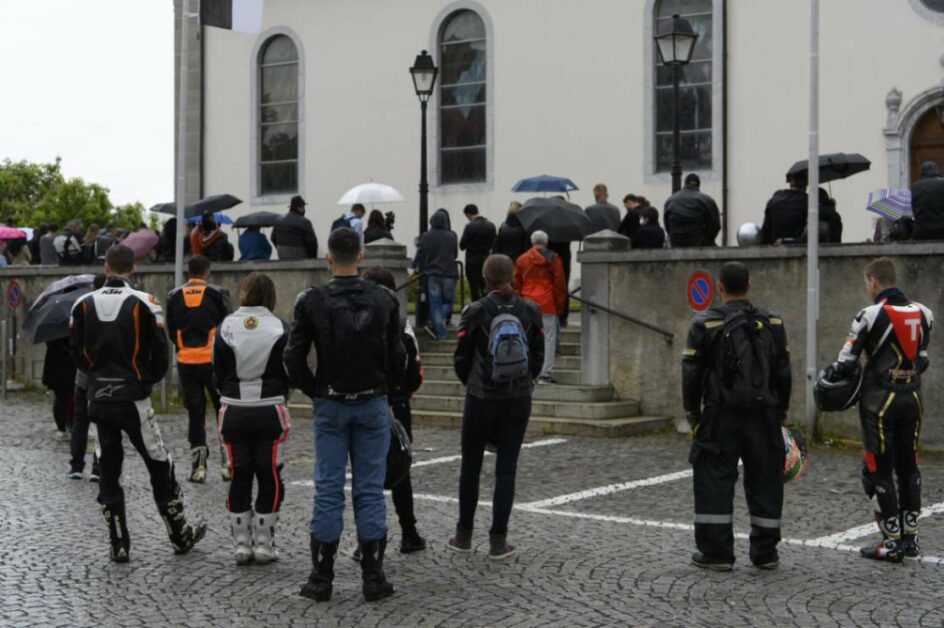الأحد, مارس 10th 2024
Amid rising health insurance premiums, Swiss families find over 10% of their income consumed, and the intelligence service faces operational ambiguities.

Households are already spending over ten percent of their income on health insurance, the intelligence service is puzzling over what it is allowed to collect and parents are alarmed about anti-Semitism in schools: This and more can be found in the Sunday papers. The headlines in unverified reports:
Many households were already spending more than ten percent of their disposable income on health insurance in 2020, when premiums were still lower. This is according to the SonntagsZeitung, citing figures from a monitoring study commissioned by the Federal Office of Public Health.
According to the study, the average Swiss family with two adults, two small children and a medium income already paid around 11% of their disposable income for premiums in 2020. And that’s after deducting the premium reduction. For a married couple without children, it was 12 percent. Depending on the canton, some households even paid almost 20 percent in 2020. In June, the Swiss electorate will vote on the premium reduction initiative. It stipulates that a maximum of ten percent of disposable income must be paid for health insurance.
The Federal Intelligence Service (FIS) is unclear about how far it is allowed to go on the Internet. This affects the department that could have stopped the Zurich assassin last week, as the NZZ am Sonntag writes. A previously unpublished audit report by the supervisory authority AB-ND indicates organizational problems in the area of the intelligence service responsible for Open Source Intelligence (Osint), i.e. the collection of open information on the Internet.
According to the report, it is unclear in which cases FIS employees can obtain information freely from the Internet – for example from social networks – and in which cases external approvals would be necessary. There are “no criteria or structured guidelines as to what constitutes Osint and where the legal framework of Osint is exceeded”, according to the summary of the report.
Following the wiretapping affair in Germany and media reports of increased espionage activities by Russia in Europe, the Federal Intelligence Service (FIS) has responded by stepping up its warning: “The greatest current threat from espionage comes from Russian intelligence services,” an FIS spokeswoman told the SonntagsZeitung newspaper.
In addition to cyber espionage, a significant proportion of information gathering in Switzerland is carried out using human sources. “The Russian diplomatic representations in particular are used for these activities.” However, the number of accredited diplomats from Russia has remained stable since the outbreak of war in Ukraine. According to the Federal Department of Foreign Affairs, there are currently 218 people. “That’s just the tip of the iceberg,” says former head of the secret service Peter Regli.
Every year, criminals defraud elderly people of millions through telephone scams – according to the police, the amount of damage is constantly increasing. Now, for the first time, a money mule from a fraudster gang is on trial. The victim of the gang, a pensioner living in the canton of St. Gallen, told the “SonntagsZeitung” newspaper how the fraudsters proceeded when they relieved her of over 15,000 francs.
The files on the case, which are available to the newspaper, show how the fraudsters used Swiss crypto machines to transfer their loot abroad. The machine belongs to the Swiss company Värdex. The case in St. Gallen is “extremely regrettable”, Värdex said in a statement. The company is actively trying to raise awareness, but fraud cases still occur time and again
The shipping lobby had a lot to say in the drafting of the tonnage tax proposal: in 2020, the Director of the Federal Tax Administration (FTA), then still “Project Manager Tax Policy Transactions”, sent the lobby organization Swiss Trading & Shipping Association (STSA) a questionnaire on the structure and effects of a tonnage tax, as SonntagsBlick writes based on corresponding emails. “How high would the assessment basis have to be, taking into account the level of the current ordinary tax rates in Switzerland, for the regime to be internationally competitive?” the questionnaire asked.
The rates proposed by the shipping lobby ultimately ended up one-to-one in the draft bill. The FTA defends its approach by stating that the tonnage tax was intended to fulfill a parliamentary mandate from 2016 in favour of the shipping industry. At the same time, the tonnage tax is already applied in 21 out of 27 EU member states.
If they do more to protect animals than the law requires, farmers have to pay extra out of their own pockets. A new report by the Federal Council on the income of farming families shows: It is precisely those farms that voluntarily participate in federal animal welfare programs and adhere to stricter requirements that often lose money as a result.
The federal contributions are not enough to cover the additional costs. Even the premium that retailers pay for “animal welfare meat” often does not cover the costs. This year, the problem is even getting worse. Retailers recently reduced the premium due to “declining demand”. And as part of its savings program, the federal government has cut animal welfare contributions by CHF 15 million as of January 2024: an average cow will only receive CHF 75 instead of CHF 90 per year.
The Valais public prosecutor’s office has opened proceedings against the Association for the Support, Management and Promotion of the Patrouille des Glaciers (ASPDG). Contrary to earlier statements by the authorities following audits, there are still “entanglements” as “Le Matin Dimanche” writes.
The ASPDG was responsible for overseeing the Swiss Armed Forces’ international military ski mountaineering competition and came under fire in 2021 for high remuneration of board members and conflicts of interest, among other things. No charges have been brought at this stage, but the cantonal police are investigating, according to the public prosecutor’s office.
©كيستون/إسدا
